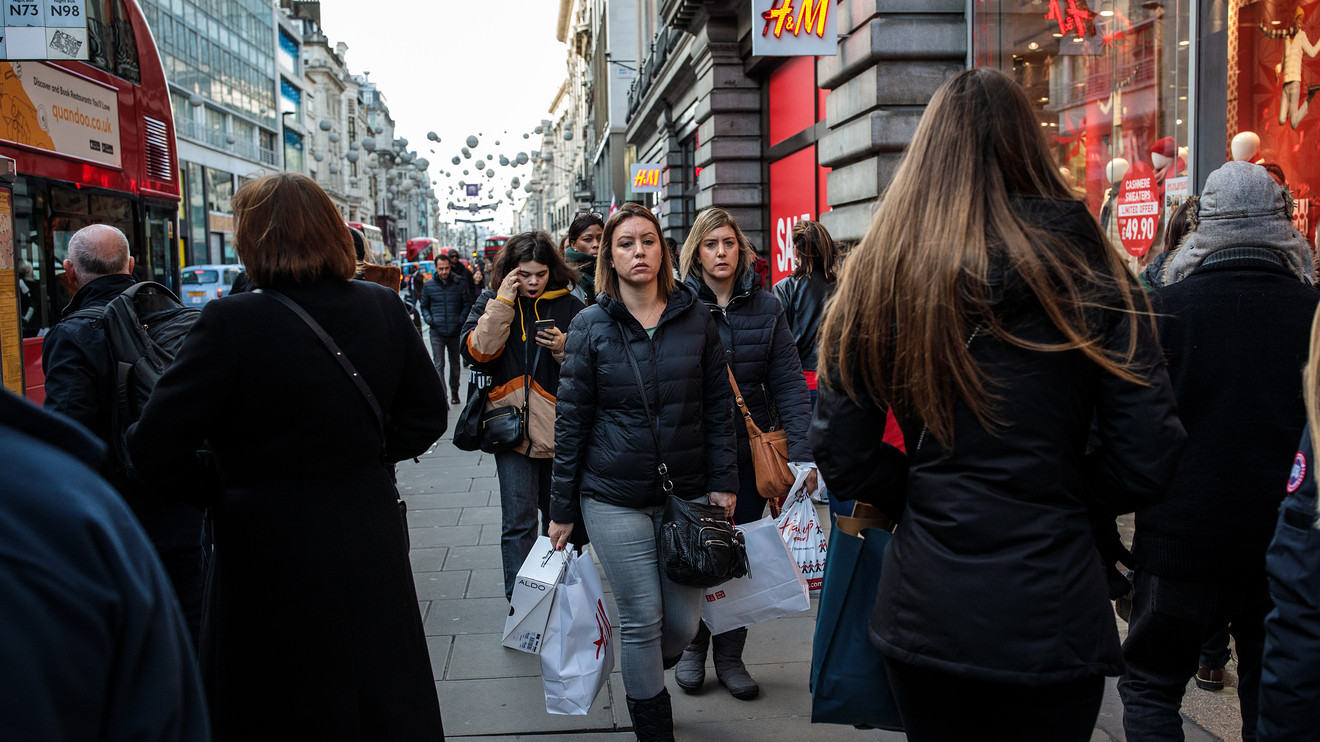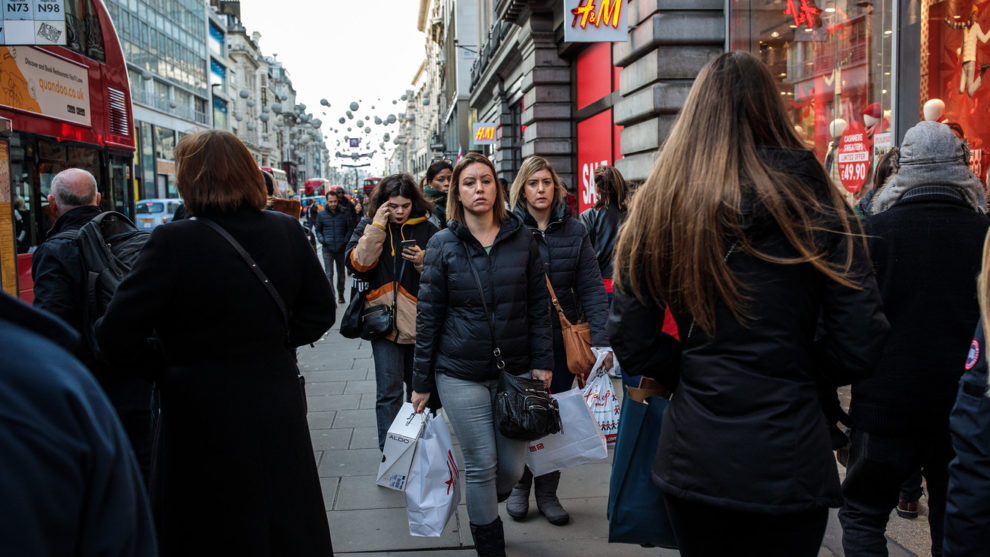
The decline in the cost of goods in British stores accelerated in September as the nation’s retailers cut prices in the face of stiff competition and increasingly frugal consumers, according to the British Retail Consortium.
It marks the fourth consecutive month in which shop prices in the U.K. have fallen, with the rate of decline gathering pace in recent months.
“With business costs continuing to rise–including business rates, wage bills, and pension costs–the high street risks more big name closures.”
Prices slipped as the cost of nonfood items continued to fall while food inflation–which reached nearly six-year highs earlier in the year–eased.
Overall, shop prices were 0.6% lower last month than in September 2018, according to figures gathered by the BRC and market research group Nielsen. That represents a faster rate of decline than in August, when prices fell 0.4%.
Nonfood prices fell 1.7% in September, while food inflation eased to a rate of 1.1%. In particular, fresh food inflation fell significantly, to a rate of 0.7%, half the 1.4% growth rate seen in August. Price inflation of food items with a long shelf life, or ‘ambient food’, slowed to 1.7%.
“With consumers feeling uncertain about spending, retailers continue to focus on limiting price increases coming through the supply chain,” said Mike Watkins, head of retailer and business insight at Nielsen.
“Prices have fallen in nonfoods helped by seasonal reductions and many food retailers have introduced price cuts to help regain momentum after a challenging summer,” he said.
Helen Dickinson, chief executive of the BRC, warned that while consumers might welcome lower prices, it would mean further pressure on the already tight margins of U.K.’s retailers.
“With business costs continuing to rise–including business rates, wage bills, and pension costs–the high street risks more big name closures,” she warned.












